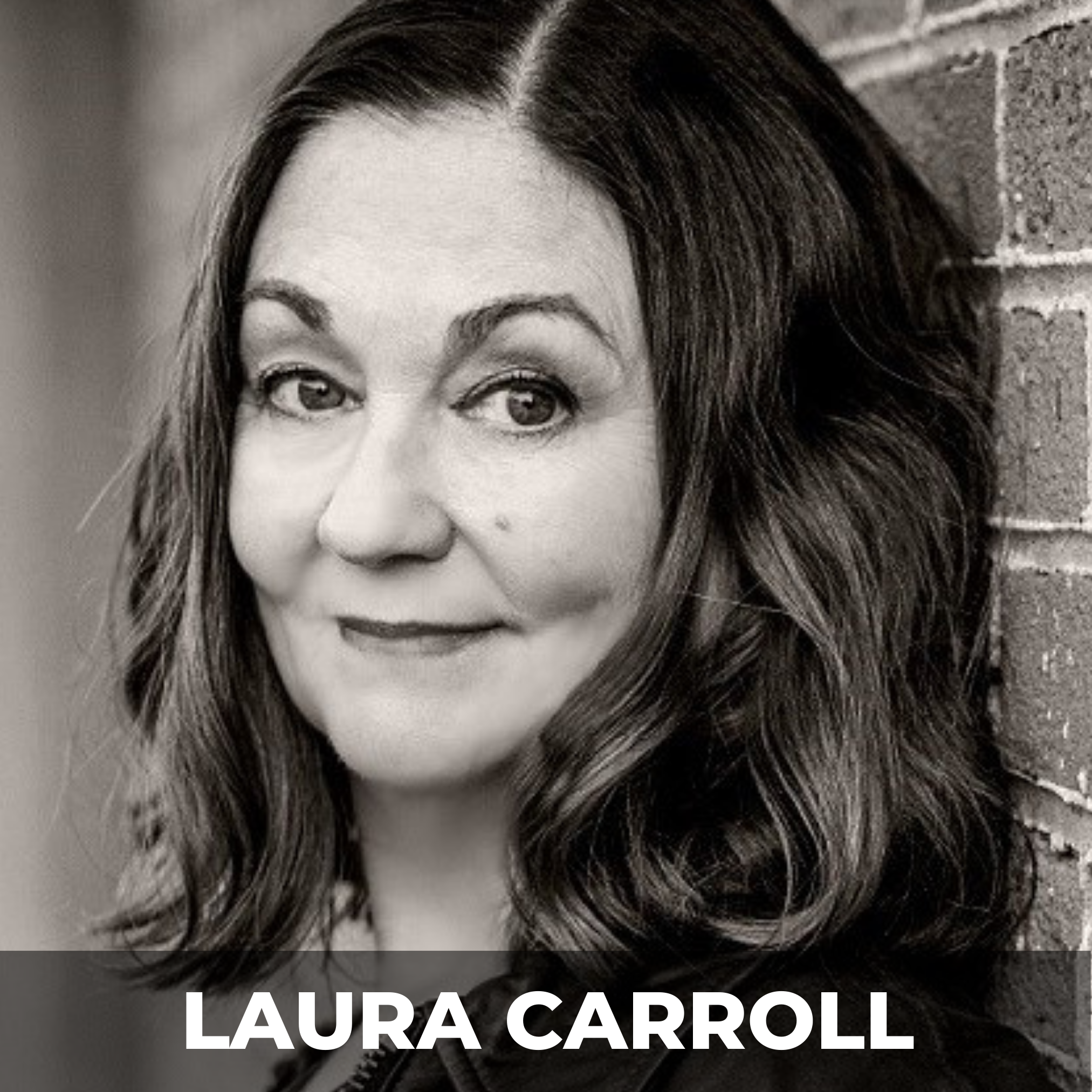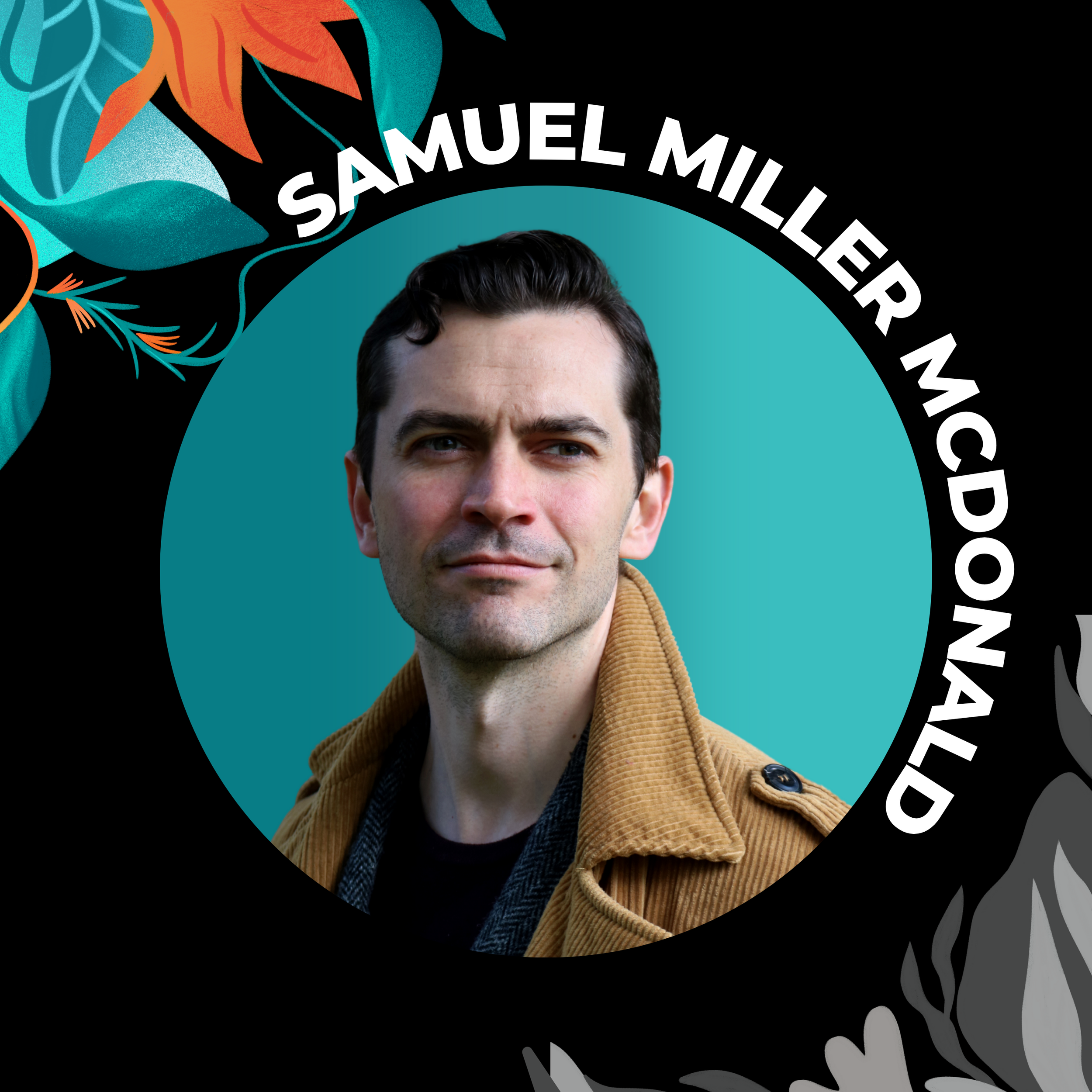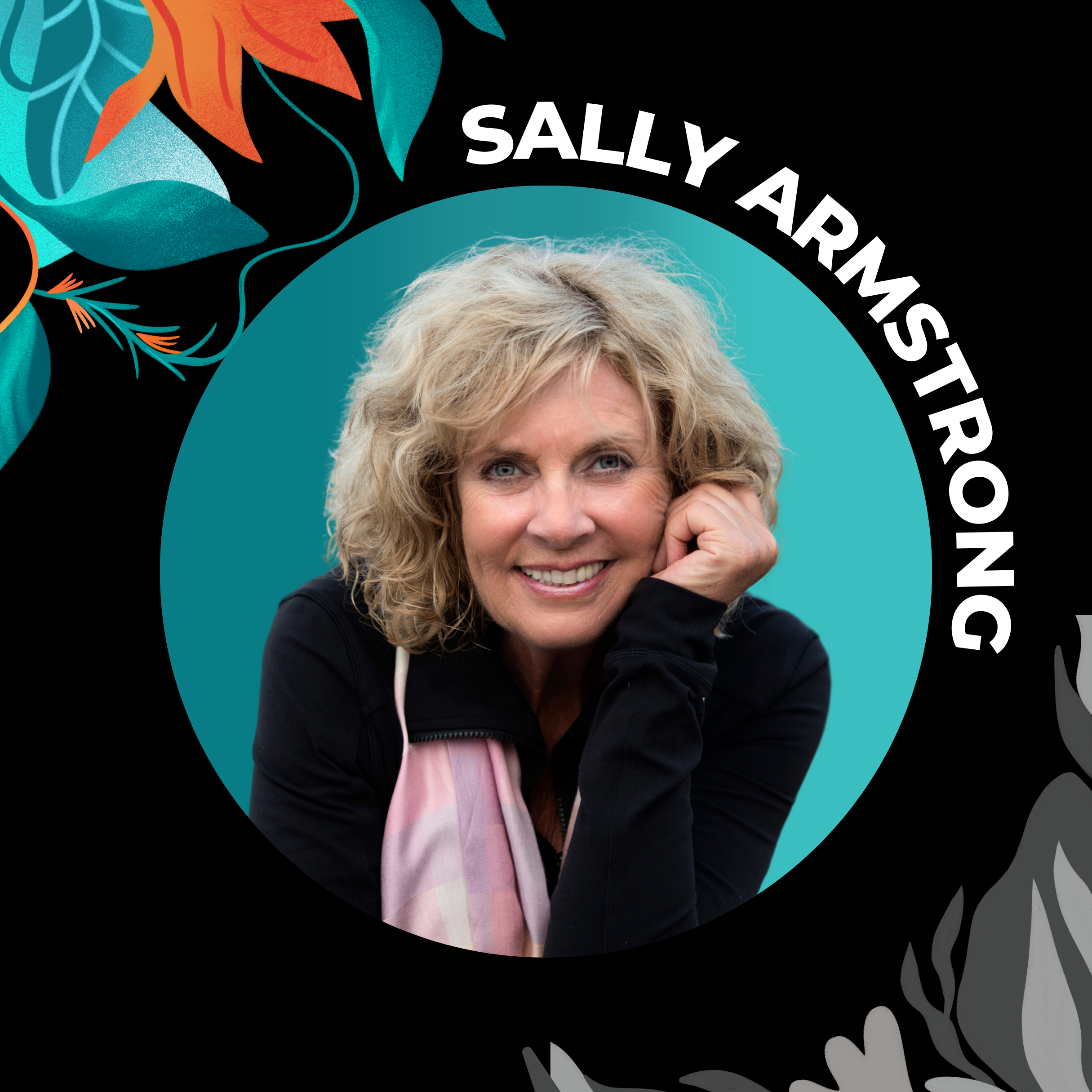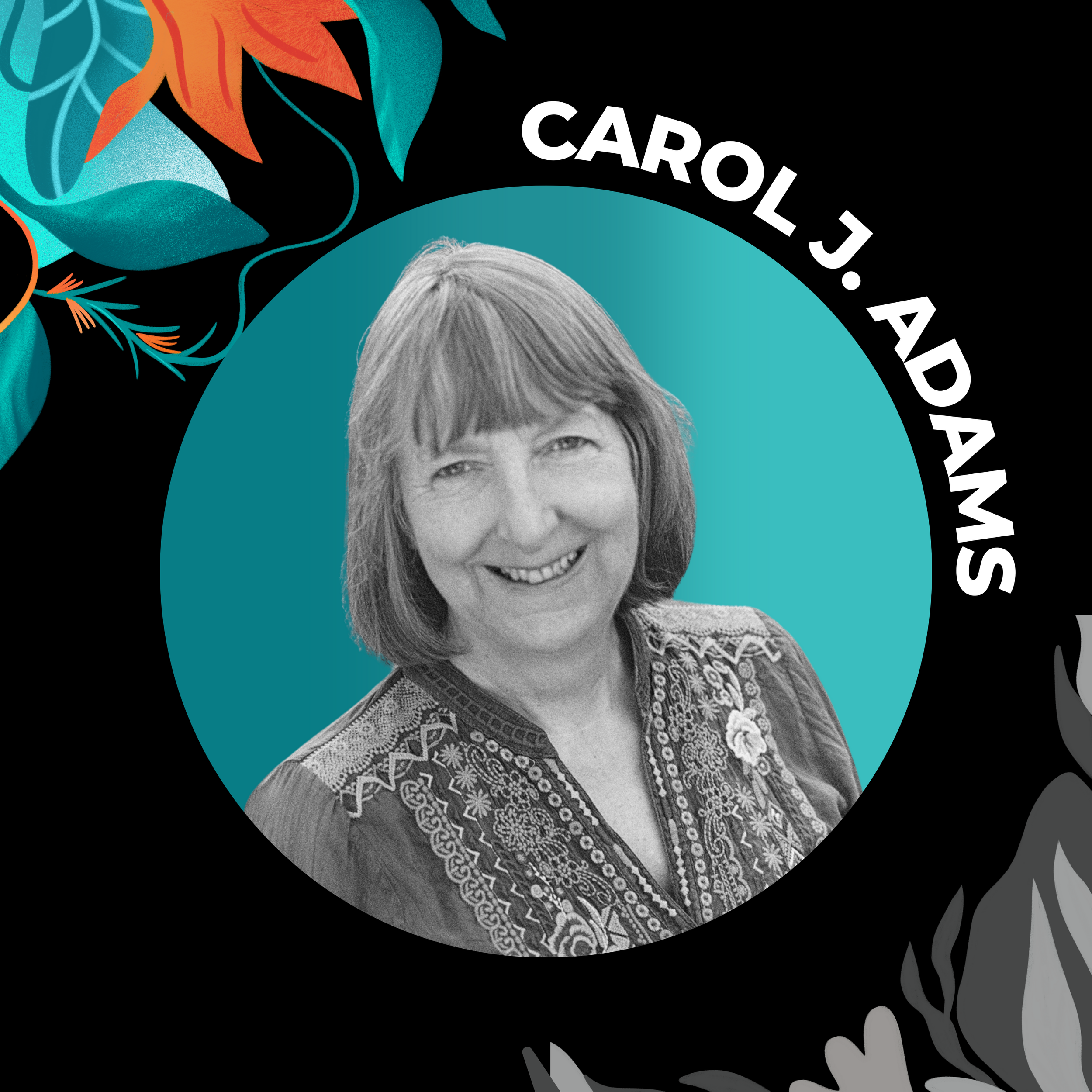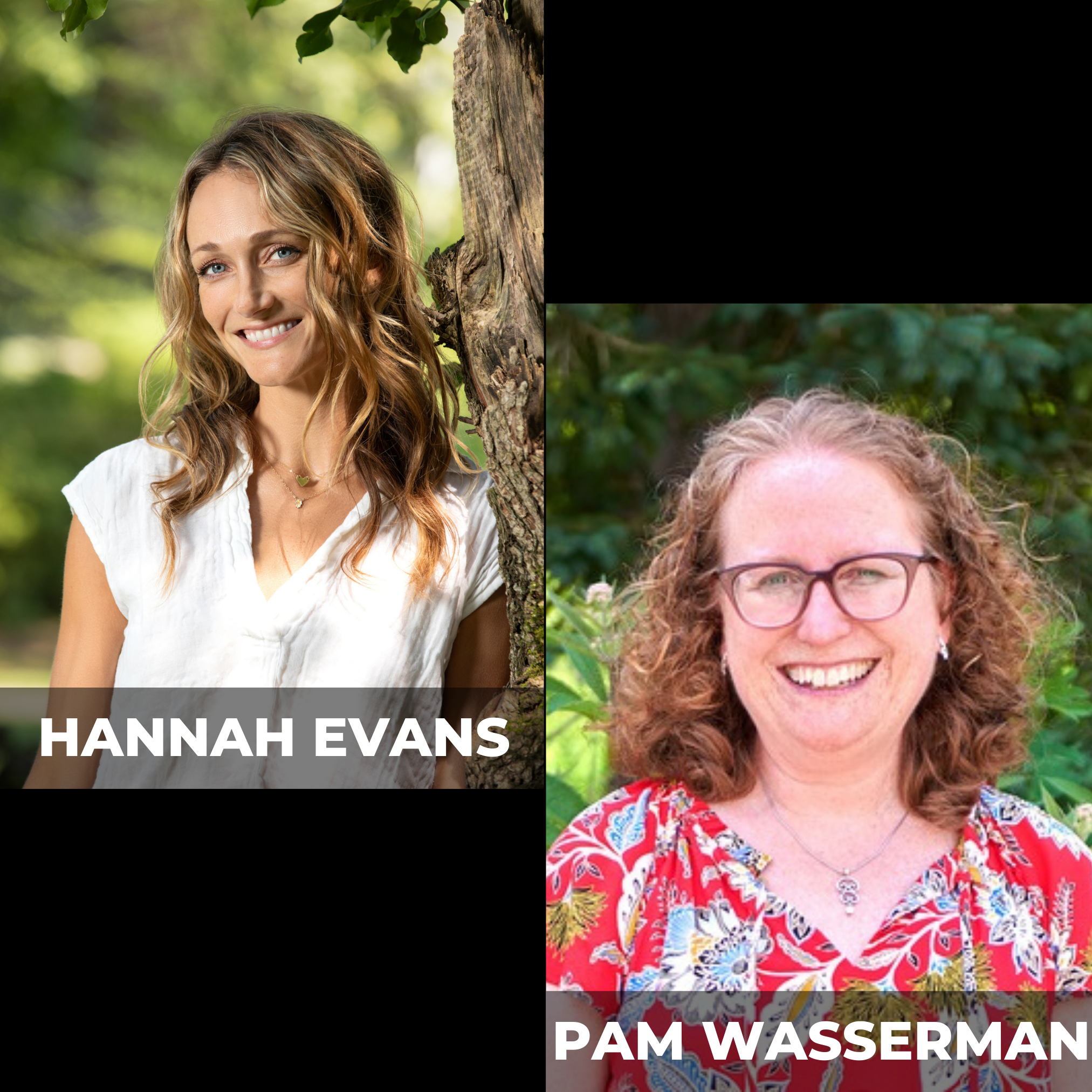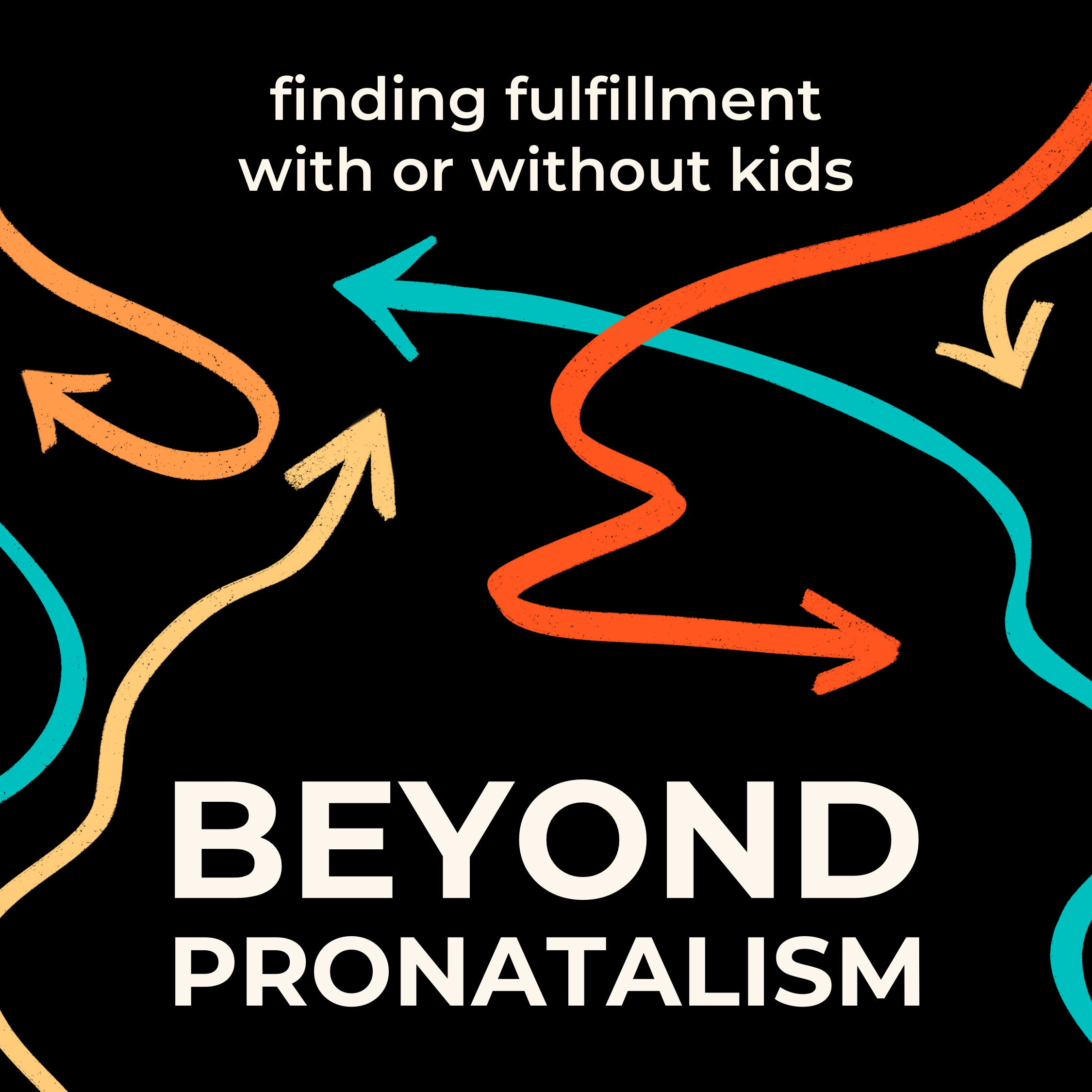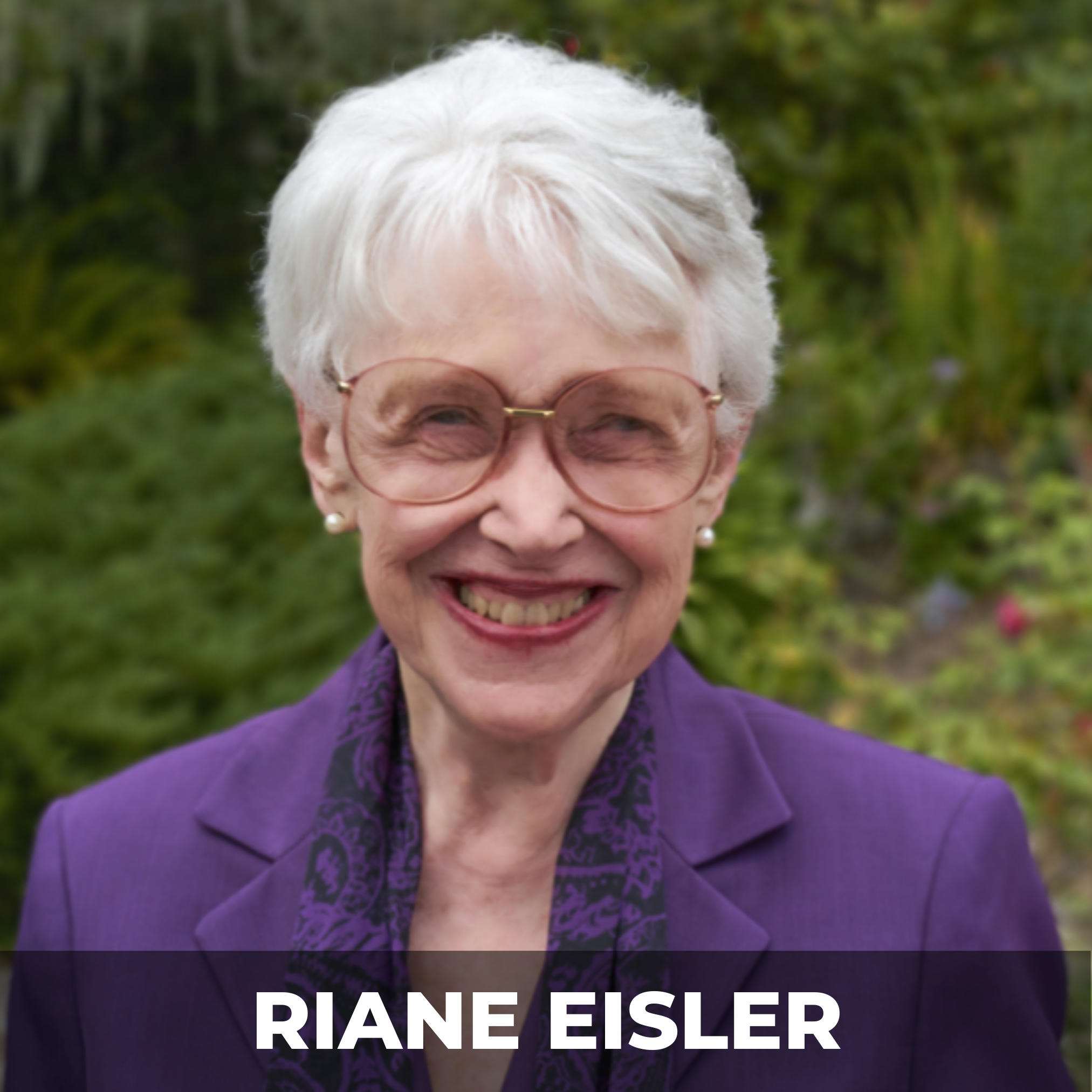Choosing Childfree
Author Laura Carroll joins host Dave Gardner to discuss the choice couples make to be childfree.
Laura served as editor for the book, Man Swarm: How Overpopulation is Killing the Wild World by Dave Foreman, and is the author of The Baby Matrix: Why Freeing Our Minds From Outmoded Thinking About Parenthood & Reproduction Will Create a Better World, and Families of Two: Interviews With Happily Married Couples Without Children by Choice.
For over the last 15 years, she has been researching the childfree choice and those who make it, and has interviewed thousands who’ve made this choice. The discussion includes our pronatal culture and where to get support, myths about family size, the cost of raising children, and of course doing your part to solve overpopulation.
MENTIONED IN THIS EPISODE:
-
Dave Gardner 00:14
Welcome to the Overpopulation Podcast. I'm Dave Gardner, Executive Director of World Population Balance. World Population Balance works to alert, inform, and educate that overpopulation is a root cause of resource depletion, species extinction, and rising poverty. We advocate and support a smaller, truly sustainable population. Find us at worldpopulationbalance.org, or search World Population Balance on Facebook. Laura Carroll is a leading voice on the childfree choice. She tracks and researches the childfree choice and those who make it. She has spent over fifteen years doing that. She's interviewed and spoken with thousands who have made this choice. She ran the popular blog, La Vie Childfree and she's a prolific book author and editor. Her books include Man Swarm: How Overpopulation is Killing the Wild World with Dave Foreman, The Baby Matrix Why Freeing Our Minds From Outmoded Thinking About Parenthood & Reproduction Will Create a Better World, and Families of Two: Interviews with Happily Married Couples Without Children by Choice. I spoke with Laura a few weeks ago on July eleventh, World Population Day. Here's that conversation. Hi, Laura, how are you doing today?
Laura Carroll 01:33
Great, thank you.
Dave Gardner 01:35
Well, August first is International Childfree Day and that is the day that we're publishing this podcast. And I think we have you to thank for that right?
Laura Carroll 01:46
Well, yes. I have to say it probably was my idea to resurrect this day. It was a day that oh, an organization called the National Organization for Non-parents, that was around in the seventies. They, they did, every year, they did a, they celebrated a Non-parents Day. And in 1973, they did something really fun and celebratory - they chose a male and female national nonparent of the year, and the man who won was a philanthropist. And the woman was a teacher. And they had them ride down Fifth Avenue in New York and an open top cab with, even with laurel leaf crowns, and were crowned nonparent king and queen, you know, near the Plaza Hotel. And I, several years ago, I learned about this. And I thought what a great idea would be to, you know, over forty years later, see if I could get a group of childfree authors and even bloggers and people out there talking about this choice to bring back to day and the annual recognition of people who choose, you know, not to have children. And so we've been doing it for four years running now. And it's been great.
Dave Gardner 02:51
Well, that's pretty neat. are the reasons for resurrecting that the same as the reasons for doing it originally?
Laura Carroll 02:57
You know, that's a good question. You know, the National Organization for Non-parents, in their day, the organization did some great work to educate society that parenthood was optional. And so I think in that sense, we were about that as well, one of the reasons why we're doing it today. You know, I think also just, we also want to have it be a way to recognize just amazing childfree people in their lives. And I feel like it's a great way to, a positive way to foster the acceptance of this choice in today's society. So we're dovetailing a little bit, I think on what that organization did some years ago.
Dave Gardner 03:36
So the purpose isn't to take pity on those poor, childless couples.
Laura Carroll 03:42
Just the opposite, it's to celebrate lives, you know, that, where parenthood was not the central focus and to really highlight that there's many different ways to live life and life with parenthood is just just one of them.
Dave Gardner 03:55
And you'll notice I mentioned childless and I thought we should talk about why it's called Childfree Day versus Childless Day.
Laura Carroll 04:00
Yes, good question. Yeah, there's a lot of talk online. And there has been for some years for some people. "Well, what's the difference between childfree and childless and why do you have to even discern the difference anyway?" So there's different opinions. Mine it still stands that I think that, at least where we are now, that using the word childfree is more pointing more towards people who consciously made that choice. It's not people who wanted children and for whatever reason don't have them. We tend to use the word childless in that case, so then that way discerns between whether it's really a conscious choice or it's something that, you know, you really want but don't have. And and for the both groups of men and women for whom that applies, there's some you know, big differences on how they see their lives and, and how they see parenthood in or not in it.
Dave Gardner 04:54
Well, obviously, we're gonna want to get into the subject of why there is is some value in doing this celebration. But before we do, let's kind of get through some of the just the housekeeping details about International Childfree Day. Now, we're recording this podcast well before International Childfree Day, we're actually recording it on World Population Day, which is interesting in itself. And we might talk about that a little later.
Laura Carroll 05:21
Sure.
Dave Gardner 05:22
But but that means that while recording, you do not, you cannot tell me who this year's honorees are, correct?
Laura Carroll 05:29
I cannot yet, no. But I can tell you past winners. Some examples of just the kind of people that we, each year I put together a selection panel, and on that panel are the winners from the year before and some childfree authors who are willing to, to put in that time. And in past years, we've awarded to people from all over the world. For example, the first year, a gentlemen, a writer from Belgian - Belgium, won. And woman from the States who was really dedicated to reproductive rights and she's an author of a book called, love this title, How Geek Girls Will Rule the World. So she's, she's up to some great stuff just in bringing more women into technology is something she's dedicated to. Another year, a documentary filmmaker from Canada won, and last year, a really great childfree guy who's dedicated his career to the service of our country, he's in the Navy doing some great things. And we chose him as the winner. So we really, each year, there's just a, we get a variety of nominations. It's so wonderful to be able to review the nominations, and then do some great discussion on who we choose to be the, you know, the winners of each each award for the man and woman. So right now, we're collecting some great nominations for this year. And so far, it's from, they're from the United States and few countries in Europe. So on August first, you can go to internationalchildfreeday.com to find out the winners.
Dave Gardner 07:02
Well, great. That was my next question. So you're one step ahead of me, Laura. Alright, well, and before we, then before we move on into why the need for this, maybe you could, and maybe this is actually part of the answer. Can you share with us a little bit about how and why you came to be so passionate about a world in which women are, are free of pressure to have children?
Laura Carroll 07:27
Well, on a personal level, it goes back to, I would say, the late nineties where, at that time, I had been married for about ten years and I went looking for a book about longtime married couples who made that choice - because my husband and I had made that choice and our friends, many of whom were starting to have children, already had them, and I was looking around for - who are those older couples that have been together for many years who never had kids because they didn't want them and what was the key is in them going to, you know, going to the distance as it were. I didn't find that book anywhere. So I decided I'd go out and find out myself. And I ended up conducting a hundred interviews across the United States and short stories. It was it was developed into Families of Two. My second book, actually, and it was just it was recognized great internationally, it was clear that the people wanted to start having this conversation. So that's how it all germinated. And from there, I've just continued to do some research and that led me to doing The Baby Matrix. But we can talk a little bit more about that if you want, but it's the the Families of Two really sparked my interest from a personal level. And then I've been doing just research ever since and trying to, you know, mission to try to educate more people about the choice and it's that it's really okay to make it.
Dave Gardner 08:53
Well, let's get into that, why, it seems like it would just be natural that we all know it's okay to to make that choice. But the fact is, there are things in our culture, there are myths in our culture, societal pressures, that that kind of distort that decision making process.
Laura Carroll 09:11
Boy, that's really a lot of what The Baby Matrix looks at and examines and tries to demystify and really, the cultural pressures, you know, that are associated with myths, they're just, they're just so powerful. Three or three of the most powerful, I think, just in my research travels and just what I see out there as social and cultural norms - one is just the idea that there's actually something wrong with you if you don't want to raise children. And as far as women go, it, the subcategory there would be that you're not really really a true woman. You know, it's you're not really in, it's a sign of womanhood, you know, to have a child and if you don't want to have a child, well, you're not quite that full woman. Another that's really powerful is that somehow we don't know what true fulfillment in life is unless we include the raising of children in our adult lives. And third, this one is just so stubborn too, that I really ran across it when I was researching Families of Two is this idea that somehow people who decide not to have children are just automatically selfish, you know, people. And really, it's so, it's so far from what I've learned, you know, so many people who make the choice are, they're busy contributing in other ways to the world and their communities, and they find, you know, really very rich fulfillment in their lives. So those are just three that I really take a look at and say, "Well, why do we believe this anyway? And what if we changed our mindset away from this myth that would then, you know, free people to make, make decisions that are just probably better for them and what they want to do in their lives without this outside pressure telling them there's something wrong with it, you know, if they do what they want.
Dave Gardner 11:03
So what did you, what did you, what have you found so far in your research about, and tell me if it's changed, you know, over the fifteen plus years that you've been digging into this, do what, what are the reasons most often cited by women for choosing the number of children or choosing not to have children?
Laura Carroll 11:25
Well, I think that you hear many people, I'm sure, by now just heard that a lot of people... What I found was Families of Two, and it's been, you know, again, fifteen, sixteen years ago, a lot of it really still holds true today. I think some people really do want to focus more on their work lives, they do have goals in their professional lives that they they want to reach and they just feel that adding parenthood would make that too complicated. And that certainly can include people that are involved in, there may not be their their job that they make their money at but it's another cause that they're, you know, passionately involved in. Many talks have talked about and still do, they talk about how bringing a marriage and a child into their marriage, they just wonder how that will affect the marriage, and they're not really sure it will end up affecting it in a positive way. So they're very clear that the marriage is first. And they really are looking hard at well, what would happen to it if we added kids to it. Others, thank goodness, have had, you know, environmental concerns, and not as many as I would like, I have to say, but there are some who really, that is the driving reason they have, you know, they don't want to add the carbon footprint, and some even are very mindful that they're not sure they want to bring a child into the world right now. So it's on that, you know, trajectory. And from a practical standpoint, a lot are very concerned just about the money it takes to raise them. It's it's very expensive to raise kids today. So those are all reasons, but I find that what's still really the nugget here is what's most important is no matter what their concerns are, when it comes down to it really, their desire to raise a child is not, you know, greater than any of these concerns that they have. Or saying it another way at the core, they just don't, they don't have a strong enough desire to have the raising of children sort of be the central focus of their lives. So the point is, they may have these objectives or other concerns. But underneath that, there's really just a lack of desire to to have the raising of children be like, you know, the central point in their adult lives. That's what I continue to find. That's what I've found, you know, researching Families of Two and really, if I really drill down in interviews today, that's really where it still lands.
Dave Gardner 13:52
I suppose in a perfect world, we would hope that every couple would actually consider everything on that list when they're making that decision.
Laura Carroll 14:00
Yes, and I think many do, and many times people who actually make the choice not to have children are the ones who've really analyzed it, you know, and really, really together, laid out their concerns and, and they think a lot about it. I think that's a myth too, that people who'd make the choice not to just don't want to have kids or they don't like kids. And it's really not the case for many couples. It's, you know, it can be it's something that really needs a very hard, hard look. And then to come to a decision which I find, I think it's a good thing. I think it's a responsible way to approach it because it's a big job and it's really something very important to do. So.
Dave Gardner 14:41
So, you mentioned these myths that are, I guess, we could put under the heading of cultural pressures to have children and and similar subject, almost identical, would be societal acceptance of choosing not to have children. What what what do women, and is it just women? May, I suppose it's probably fathers or potential fathers as well. What do they experience in the world? How do they experience these pressures? How do they manifest themselves?
Laura Carroll 15:10
Good question. Well, certainly the cultural and social pressure around the idea that there's something wrong with you. They, I think a lot of childfree people feel judged in that way that that others see them as, you know, they're missing something or, or something's just not right about them, or they believe that it will only be a matter of time before they'll see what they really want. And that is to have kids so and then the childfree get a little put off by that saying, 'Well, how is it that you somehow know me better than me?' So there's a judgement realm. But there's also, I find a lot of pressures that fall into maybe one of three categories. One very common is what I just like to call relational pressure, where we can get this pressure from loved ones, or even our parents that, you know, they want us to do what they did. It's a way for us to be closer with them and have something huge in common and, you know, that's a good thing to be closer is good. So it's to strengthen - the pressure comes from an intention to strengthen the relationship and be closer. But then in the process sometimes you can, we might get what I consider guilt-driven pressure, where it's, you know, kind of intended to make you feel badly about doing what others want you to do and it can can come in any, lot of different ways, from how someone might say to you in your family, how you're disappointing the family, you're disappointing our parents, you know, or you'll be responsible for your spouse's, you know, lack of fulfillment in life, whether that's true or not. And this also applies to, by the way, if you already have children, such as you only have one child, that others may give you this guilt-driven pressure that, you know, you know, John, Johnny really needs a sibling to really be a well-adjusted child, which is a complete myth. And we can talk about that if you want. But then thirdly, there's just what I call nosy to invasive pressure. And these are just things that are just go, you know, maybe over the top, where loved ones or parents are asking directly about potential physical or emotional problems that are maybe going on in the relationship or, you know, "Have you decided to go off the pill?" Or I've even heard from few couples ready that their parents have said, "We'll buy you a house if you guys have a kid." I guess that would be beyond invasive, that could be considered bribery.
Dave Gardner 17:45
Well, I was sitting, I was sitting here thinking that most of this sounds like it's things that come up in conversation that it's probably not that a landlord won't rent you a house because you don't have kids. You probably don't run into that kind of thing too often.
Laura Carroll 17:58
You might like that.
Dave Gardner 18:00
Yeah. We probably need more of that just, you know, coming from the standpoint of a sustainable population advocate, which you know I am.
Laura Carroll 18:07
Right.
Dave Gardner 18:08
I might be tempted to applaud that. But I have to say that I run into very few women who have adult children who aren't kind of, you know, anxious to have grandchildren. Very few. I've run into very few women who say, "No, I don't want grandchildren or I, you know, or I'm ambivalent about it even."
Laura Carroll 18:31
Oh, yes. You mean, would be grandparents saying, "Oh, I don't really care about that. It's not important to me." Yes, I think you're right. I think where we are just maybe dovetails a little into where we are, in terms of the acceptance of this choice, just from a bigger society level or look, is I think, with every generation, we're seeing more acceptance of this choice, just socially and culturally, honestly. But where I find it still stuck a little is is is what is it? The NIMBY idea, you know, not in my backyard is, I think grand, would be grandparents are okay with it if it's somebody else's adult child who makes that choice, for example, but as soon as it's their children, then it can get a little more complicated. Then then they they come up against, "Well, we really do want to be grandparents," and then they go down a, you know, the common road of some pressure of some kind.
Dave Gardner 19:29
That's really interesting.
Laura Carroll 19:30
You know, guilting them or, or, you know, whatever it works in, say in their family system. So, yeah, I think a lot of would be grandparents, they, they do want their kids to do what they did. And so that too also is really important to be able to talk about. Like when couples say they're getting pressure and they want that pressure to stop. That conversation absolutely needs to include, you know, an understanding, seeking a mutual understanding for the would be grandparents, they didn't really understand that they're, they they need to see what, what's really in it for them. Why are they pressuring their adult children the way they're pressuring them? Why is it so important to them, for them to become grandparents, you know, to take it to a deeper level and I found that when families can do that, or even with friends and loved ones, if you can go there, I think it really can nip the pressures in the bud if it's done well.
Dave Gardner 20:27
I imagine you have some pretty good advice for anyone who's kind of experiencing some of these pressures. How to deal with that, how to put a stop to that.
Laura Carroll 20:37
Yeah, and what I was just referring to certainly is one of those steps. But yeah, like, over the years, I've I've think I just call it a quick four part strategy. That one is, few are getting pressure what the first thing not to do is to lie. And in previous generations, I think this has happened more, where a couple might say that, you know, the reason they're not having kids is because they're having trouble to having having a child or getting pregnant, or you know that something physically wrong to send that message so that people will just be quiet and feel badly for them. And then then we're done with talking about that. But yet, you know, if you do that, then sometimes you have to continue that lie, which is not good. So instead, I'd say it's really just obviously very important to be clear in your own mind about why you've made the choice. And honestly, sometimes I talk to people and I really ask him that it takes a little while to articulate it in a very succinct way, and be prepared to really tell others in that succinct way. So some prep involved in just thinking about and planning how you want to state it to people who are say, giving you this pressure. And if you're married or in any kind of committed relationship, it's so important to present a united front because a lot of times I've found if it's the woman who makes the first comment or starts talking about why she doesn't want to have kids, often, his family will think that the reason they're not having kids is because of her. And when really, it's because they both made that choice. So it needs to be very clear. And then third, just to nip the pressures in the bud, like don't wait to talk about it. I can't tell you how many stories I've heard over the years where a couple sat on whatever pressure they were getting, and and sometimes the interrogation from the people giving them the pressure became so intense that that whole conversation hit a breaking point and an argument started and went down a whole road it didn't need need to go on. So it's, don't wait once you're feeling it from folks. And then fourth is what I referred to earlier is the seeking mutual understanding is we need to have to be able to ask others, you know, why is it that you want me to have children? Sometimes with would be grandparents, it means admitting that, you know, they might have concerns that if their adult kids don't have kids, it may reflect badly on them in terms of how they raised those kids. So they're fearing judgment from others based on what their adult children are doing or not doing. Maybe they want grandchildren because they want to feel more fulfillment in their later years. And that's taking more precedence or more importance than, "Gee, what's really important to my adult child and his or her spouse?" So getting to that level of conversation, I feel like if they can understand why their motivations for wanting their kids to do something they want them to do, and that they acknowledge that that the pressure really stops most of the time. So what it really means is you really need to seek some kind of mutual understanding. That's what I found works. If couples really just are mindful about trying those, those four steps, a lot of times it brings the families closer because they understand each other more. And I think that that's huge.
Dave Gardner 24:08
I would imagine that the more self doubt you have about your decision, the less effective you are in fending that off. And conversely, the more confident you are about that it's okay, that it's not unnatural to make the choice to be childfree the better you handle that communication.
Laura Carroll 24:29
Absolutely, I think so. I think the the step that you really be clear in your own mind, why you feel why you feel this way and be prepared to, to talk about it and have a couple of focus on that until they're ready is really, really important. And if you're not sure yet, and you're still in that process of deciding, well that that's what you say. So, and the same steps apply if if others are still pressuring them, you know, "Hey, make up your mind, or it'll it's only a matter of time before you'll you'll see, you know, that you'll want them." You still get pressures in that indecision indecision mode. But that too, if they can go to seeking mutual understanding, like, "Hey, why are you so intent on me, you know, making this decision yesterday?" So the steps really still do apply. And they also apply too, again, well, if you have one child and all the myths around one child and how we're supposed to have another one, that seeking mutual understanding is also really important. That the would be grandparents who want that boy in addition to the, you know, granddaughter, well, why is that anyway? To go to go there, I think is not uncommon.
Dave Gardner 25:40
Well, you've mentioned that twice now. And it's time for me to bite, it's time for me to bite. Let's talk about that one child. That one child myth.
Laura Carroll 25:47
You know, in terms of in terms of population, I think that we would probably both agree that we would, we would promote and want couples to think about, you know, stopping at one child, you know, and or and or be open to the idea of not having any. So there's just some huge myths around the one child that I think makes it very hard for people to to make that decision. Is that something that you found out there as well?
Dave Gardner 26:14
Oh, definitely. Definitely. And I'm really looking forward to having some expert debunking going on here. Because yeah, there's there's so many people who are afraid that they're not doing, that they're harming their child if they if they stop at one, that they're going to raise a child who is not socially adept, or, you know, somehow is behind the eight ball.
Laura Carroll 26:37
Right, right. Well, this is so interesting that to go back to where this bias began, it goes back, at least in my research, to the late eighteen hundreds with a psychologist whose name was Stanley Hall. And he was kind of like the Victorian areas, eras Dr. Spock. And he did a study back then on quote, peculiar and exceptional children. I mean, I just remember that phrase, it's really hard to forget, with about a thousand child subjects. And he loosely defined that with reasons that there were psychological or physical. And so he found 4%, okay, 4% were only children that fell into that category. So somehow, he concluded that that number was entirely out of proportion to children generally. And it meant that an only child is very likely to be peculiar and exceptional, which, I mean, it's just amazing.
Dave Gardner 27:36
The math doesn't seem right.
Laura Carroll 27:37
So no, it doesn't. So as you might imagine, his studies have been criticized for reflecting his own beliefs. And in actuality, his boyhood included, he was one of many siblings, okay,? He had lots of brothers and sisters. So it's still a mystery to me even though the studies after Halls did not really stand up to the rigors of good research. Somehow, the idea has stuck and become conventional wisdom until a really great Professor Toni Falbo, who was a professor of educational psychology and sociology, I think I think these she's still at the University of Texas, Austin. She looked at past studies more closely and they; she and her colleagues analyzed well over a hundred studies of only children in the United States across class, race, from, I think, the early, by mid twenties, by say, 1925 I believe, and they looked at a number of variables like adjustment, character, achievement, intelligence - they found that only children weren't measurably different from any other kids except that, you know, along with, say, firstborns, or and people who only have one sibling, they scored higher on measures of intelligence and achievement. So not only did they find that those kids are no more likely to be lonely, shy, selfish, or even maladjusted, you know, than, than children with siblings. Personality studies don't make any distinguishing differences. So she really tried to get out there and, you know, promote and say that, "Hey, only children really experience benefits." That, you know, for example, they don't have sibling rivalry which, you know, can have an impact on a person's life. There have been studies done about that as well, when it was particularly difficult. And they don't have to fight for affection, you know, they, they they don't have to compete for their parents attention. They tend to be, you know, more you know, achievement in the high high scores in achievement and intelligence. So she was really a pioneer in trying to demystify this only children thing and I think it's, it's, you see more people having one child, but honestly, I think it's because it's more back to that financial reason. It's a pragmatic decision, which is okay with me. You know, the motivation, whatever it works for folks, but I think that the myths are still a little, they're still pretty powerful, you know, that the only children are looked at maybe as like, "Oh, they're going to be a little more spoiled or self-involved." And you know, really a lot of that it can happen in families with with kids with siblings as well. So the family hall to the Toni Falbo story is really, really a great one on how how shoddy research just sticks. And then then we have to end up, you know, trying to unravel it years later.
Dave Gardner 30:33
Well, thanks for enlightening us on that. Laura Carroll, let's go back to the, you know, you mentioned progress has been made. And I would guess that a big part of that would have to do with just the role of, of women, gender equality, even though we haven't quite reached 100% success there. But, but if you go back, you know, fifty, sixty, seventy years, when women didn't have much opportunity in the workplace, they were expected to be at home, I would think that, you know, wow, then your options for fulfillment would be a lot more limited. And you would be a lot more inclined to say, "Well, obviously, I got married, it's time to have kids."
Laura Carroll 31:11
Right.
Dave Gardner 31:11
And have we seen that a lot of that attitude changing just because women have so much more, the world is their oyster today?
Laura Carroll 31:19
I would say that a key point on the timeline is when the pill became available to all women. So that gave families the power to plan, you know, when they wanted to have children, and I use that word very specifically, because I think at that time, the idea of not having children - it was out there and talked about but really, the power of the pill was it really put family planning into a whole new stratosphere, you know, how people time, their, their, their births with their children. And I think that another touch point on the timeline, was really around the time that Families of Two came out was when, really the internet was just getting going. And I don't know about you, but I remember the first time I got onto a search engine and thought what the heck is that? It was new and, but the last fifteen, sixteen years, you know, websites, the blogs, our online culture has really, I think fueled an explosion really of information and education about about opting out of parenthood. And prior to that time, you know, lots was written about it and etc. But the the digital world has really I think helped that those who've made the choice and the educate education about it really come out of the tributaries of society. So it's yes, it was cultural from the fifties and sixties. But boy, the digital revolution has really, I think, made the progress generationally speaking, go faster than if we didn't have it.
Dave Gardner 33:08
Hmm, that's something to think about. And you made me think, wow, we really do we take the pill for granted. Although lately, we don't take it for granted as much as we used to.
Laura Carroll 33:20
Right. Yes.
Dave Gardner 33:20
Because that seems to be, you know, even that is under attack.
Laura Carroll 33:23
Yes.
Dave Gardner 33:23
But but, you know, I think I see, even today where certainly in industrialized modern nations like the United States, where it's not that difficult to, to access the pill, or certainly condoms and and even getting easier in some places to take advantage of other forms of contraception. I think there are still some, you know, even teenage girls who haven't been raised to expect anything out of life other than to get married and have children.
Laura Carroll 33:59
Well, I certainly think it's modeled for them the most by their, their own families. And our culture definitely models it very powerfully. And I talk about a lot that a lot in The Baby Matrix. So in Families of Two, I did that book, and that led me to start asking the question, "Well, why does it, why does society find this choice so hard to accept anyway?" And that led me down what I just like to call a rabbit hole because I went back like generations in time, back to the times of Augustus, for goodness sake. And there's a set of beliefs called pronatalism that exalts the role of parenthood. And that's been the bedrock a lot of a lot of social and cultural norms for many, many years, many generations. And I think our young women today, you know, those norms are still very powerful that they, they they see them, they feel them, they think that's what's normal. And what I'm trying to do is to have those younger generations, and in the book, I market it specifically to say millennials and people in college to say you need to really look at those beliefs, because honestly, that's all they are. It's like been in our cultural hardware for so long people think that, you know, again, it's wrong if you don't have the desire to have children. Well, if you really analyze it, it's a myth. So we need to break free of these beliefs and have these younger people see that see that that's all that they are so that they're freer to make better decisions for themselves as they grow into their adult lives and help them see that in a world of seven billion and, you know, continuing to, to, you know, increase just exponentially that what every what every birth really means, and what it means if they're the ones who bring those next children into the world. So those young, you're spot on in terms of going right to young people and helping them see the bigger real picture.
Dave Gardner 36:04
You've been talking quite a bit about two of your books, Families of Two and The Baby Matrix. It sounds like they're extremely valuable. I want to get into Man Swarm for a minute. But before I forget, what's the best way for someone to find out more about these books and purchase them?
Laura Carroll 36:20
Just go to my website, lauracarroll.com. Easy to find them right there.
Dave Gardner 36:24
Easy as pie. Okay. Alright.
Laura Carroll 36:26
Yep.
Dave Gardner 36:27
Alright. Now, Man Swarm. A little bit more complicated book. And would you care to give us a quick explanation of of how you got involved in that project?
Laura Carroll 36:37
Yes, as I was researching The Baby Matrix, I ran across a gentleman named Dave Paxson.
Dave Gardner 36:45
I know that guy.
Laura Carroll 36:49
And I wanted to just learn about more of the population issue because I was looking at pronatalist assumption we have that, all around the right to have children. That anybody who's biologically capable, should be able to have children, whatever they want. And I was looking at more the social and cultural negative effects associated with that. So overpopulation. Was looking at that and researching that, and I see, saw Paxon's name a lot so I call him. And it wasn't far into our conversation where we both went, "The best book I've read, you know, to date, is Man Swarm by Dave Foreman." And we thought that was quite the coincidence. But we also agreed that the first edition was really written for a conservationist community, and not to say, not per se to someone in his or her twenties, you know, in college. And so we got the idea to, to do a second edition that was really designed to be more for the masses for them to understand the overpopulation crisis. And we got a generous grant to do that. And we got a secondary grant that we're in, still in the process of implementing is to get the book in schools and colleges and in two year community colleges. So we're in play with that and it's going really well, so I'm super excited about that.
Dave Gardner 38:14
So how's the college program working? And is there anything a listener can do to help us with that?
Laura Carroll 38:20
If you want to help with that, just I would say go to my website and just go click the contact me little button at the bottom of their homepage. And just email me that, because we've we've put the message out via, you know, social media, as well as just doing putting lists together to seek out professors in the United States and Canada, really all over the world. And so if if you are a professor, I guess that's obvious. If you are a professor and you're interested in receiving a free complimentary review copy, more than happy to send it to them. So if you know anybody who is in that profession, who might want to see the book, we're giving them out complimentary just to see if people want to use them in their coursework. And so far, I mean, I expected professors you know, in environmental studies, maybe environmental sociology, would want them to be, they'd be open and looking to looking at the book, and it's definitely been so but I've gotten requests from professors in psychology and in social problems area of study in universities, ethics classes, philosophy, even religious studies. So very interesting. You know, I think that a lot of professors understand population is an issue that it gets into many other realms, you know, socially and culturally in our world. So, so far, we got well over a hundred reviewing the book and counting and my hope is that it will be used, you know, in full or in part in a lot of classrooms.
Dave Gardner 39:58
Well, that's, that's good to know. Wrapping up, I mentioned earlier that we're recording this conversation on July eleventh, World Population Day. And obviously, throughout the thread here, we've alluded to the connection between family size choices and overpopulation. But I want to give you a chance to speak more directly to the, to that. What are your thoughts about the link there and the importance of it?
Laura Carroll 40:26
Well, it's, it's a powerful link, because I feel that, and there's a reason why I did the books that preceded Man Swarm, it just felt to me that if if people can see through the myths we have about parenthood, then it releases them from these cultural and social norms and being released from that or seeing beyond it, it makes them, you know, it will make them freer to make decisions that are best for them. And it will also help people - with that new freedom, they can see that what it means to bring another child into the world. And they're more, my hope and belief is that they, we will find more people actually choosing not to bring more children into the world because they see the larger picture. And they see that it's more than okay not to bring that child into the world. So the link between demystifying these norms, and population stabilization and reduction is powerful. I think that that, so I'm very motivated to have more people know about that. And it's the same again, for families with one children, you know, that it's really busting through the myth that you've got one biological child, it's really okay, really okay, more than okay, for that child and it's also probably the best choice for the world to stop there.
Dave Gardner 41:48
What strikes me that there are there are two things that have to happen in order for us to be making the decisions we need to be making in order to really, to give future children, all the future children of the world a fair shot at living good lives. One is that we've got to get past this mythology and understand that it's perfectly natural to not have children at all, or to only conceive one. And the other is, I think young couples who are making these family size choices really need to know that the world is overpopulated, that we're beyond seven billion, and that the scientists who've done the most credible research on this so far, tend to all agree that a sustainable world population is somewhere well below three billion. There's some disagreement about whether it's a billion or two billion or, or what. But we know we're way beyond that. But I think most many, many couples do not know that we are, you know, that the world's biocapacity is being injured year, year after year because of the number of us on the planet.
Laura Carroll 42:53
Yeah, I totally agree. I do feel though, as someone who's come out of academia, sociology, and psychology that I think even if they know these truths about overpopulation intellectually, if they still have these attitudes and beliefs, grounded in, "Oh, but there's something wrong with me if I don't want children," if they still believe that, it's very difficult for them to still make the decision based on those intellectual factors. So that's why I push so hard on, you know, the things I talk about in The Baby Matrix is we've got to, we've got to look harder at why we think the way we do about parenthood such that, then it will become easier for people to go, "Oh, and yeah, of course, it's a problem. Look at these numbers." So I think from the emotional/attitudinal comes the behavioral change, maybe maybe my bias.
Dave Gardner 43:48
I will agree, you're doing the more important work and thank you for that. And I hope you will continue, Laura Carroll, to track this and come back to us with with new information and new updates and, and new ways of kind of getting at that emotional, any of the emotional triggers to help people do the right thing.
Laura Carroll 44:08
I hope to. Thanks so much. And I really, really applaud and respect your work, you're right in there. I just, you're just, I have followed your work for some time. And I want to thank you for that as well.
Dave Gardner 44:19
Well, thanks for a great conversation, Laura.
Laura Carroll 44:21
You too. Thank you.
Dave Gardner 44:23
That was Laura Carroll, a leading voice on the childfree choice. Her books include Man Swarm, The Baby Matrix, and Families of Two. For more information about International Childfree Day you can visit internationalchildfreeday.com. Also to follow Laura Carroll and check out her books. Visit lauracarroll.com. That concludes this episode of the Overpopulation Podcast. I'm Dave Gardner, Executive Director of World Population Balance.


